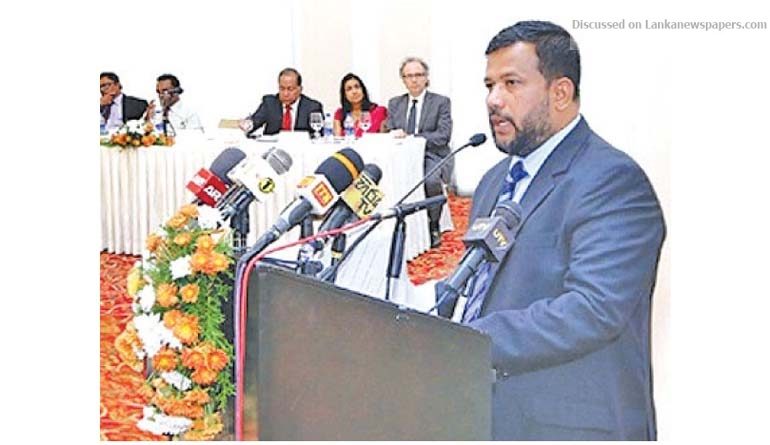‘SL has high use of internet, smartphones but very low on e-commerce’
Sri Lanka’s internet and smartphone use has grown to a considerably high level in recent years but e-commerce users among them are still low-with unsatisfactory penetration.
Meanwhile, Geneva’s International Trade Centre has called for expanding Lankan e-commerce payment facilities beyond present set of few, large financial institutions so that more Lankans can get online to transact.
“Despite the high rate of smart phones, social media use and the high potentials for e-commerce in Sri Lanka, the use of our e-commerce is still at low levels and at low penetration” said the Minister of Industry and Commerce Rishad Bathiudeen addressing the launch event of two day “National Public Private Dialogue for a Fairer Digital Marketplace” by the Consumer Affairs Authority (CAA) under him.
The event is supported by the European Union and Geneva’s International Trade Centre (ITC).
“Sri Lanka has been ranked high on e-commerce in the Top 10 developing and transition economies in East South and Southeast Asia by the 2017 UNCTAD business to consumer e-commerce Index report. Sri Lanka’s ‘overall rank’ in this report is 73 out of 144 countries,” said Minister Bathiudeen,
“New York based internet research firm STATISTICA estimates 25% of Sri Lankans are using all types of social media including Facebook. Despite the high rate of smart phone and social media use and the high potentials for e-commerce in Sri Lanka, the use of our e-commerce as a platforms is still at low levels, and we can say that it is at low penetration levels.”
“Sri Lanka’s annual domestic ‘e-commerce only’ sales value is around an estimated $ 19 million or an estimated Sri Lanka Rs 3,000 million. This means only one percent of our total consumer sales in the domestic market is done though e-commerce sales. The biggest reason for the small size of our e-commerce platform is that the Lankan e-commerce industry is still in its early stages with the need for many more new startups to join it and expand it.”
“Perhaps the most important reason is that Lankan consumers despite showing a very high rate of smart phone use are going slow on e-commerce transactions is due to their fear on the unsafe nature of online sales, on their online safety as well as lack of protection of their online data. ITC’s expert Prof Geist highlighted the key bottleneck faced by Lankan e-commerce.”
“It is exceptionally encouraging to hear his recognition of the tremendous e-commerce opportunities as well as challenges presented in Sri Lanka” said Professor Geist.
Though Sri Lanka has an electronic transactions law in place – (the Electronic Transactions Act, No. 19 of 2006) e-commerce experts and market players call for changes to it to bring it in par with international best practices.
The two-day session will also focus on facilitating online fund transfer to and from Sri Lanka using such well known global platforms as Paypal.

